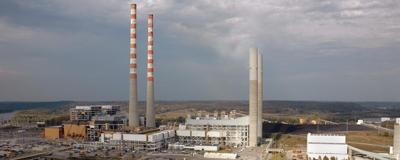Bill McKibben, a giant of the environmental movement, will join regional climate organizations as a featured speaker at the Rally for the Valley at 4:30 p.m. Wednesday at Centennial Park, where clean-energy advocates will take aim at the Tennessee Valley Authority.
As TVA phases out coal-generated power, the federal agency has provoked a national backlash for replacing its power supply with natural gas rather than solar or wind. Critics have also attacked the agency’s plans to extend pipelines across Middle Tennessee and East Tennessee and seized on a recent report detailing $89.7 million in recent executive pay, including bonuses tied to gas production. A president-appointed board governs the public utility, and just last month Tennessee's U.S. Reps. Tim Burchett and Steve Cohen passed bipartisan legislation compelling TVA to regularly provide more detailed information on executive pay and management structure. Rather than lead on a national transition to clean energy amid dire reports of carbon-fueled climate catastrophe, TVA has been pilloried as an example of fossil fuel corruption and a liability for the Biden administration, whose carbon reduction goals the agency openly ignores.
McKibben spoke with the Scene a few days before his trip to Centennial Park. Third Act, his environmental group aimed at climate activists over 60, is helping organize Wednesday’s event.
Why come down to Nashville, specifically, for this rally?
I’m going to speak briefly — only for a few minutes, I think — to make the point that it’s a bad idea for TVA to lock in gas power for decades. Fifteen years ago, people said gas would be a bridge fuel from coal to the renewable era. That seemed like a reasonable argument at the time, because it releases less carbon dioxide than when you burn coal, but two things have happened since. We learned that a lot of gas escapes into the atmosphere during the fracking process, and it traps way more heat than carbon dioxide by about 80 times more heat. A leak rate of more than 2 percent makes it worse than coal; we’re finding 5 percent leaking at fracking fields. Second, the price of renewable energy — sun, wind and batteries to store that power — has dropped by 90 percent. We live on a planet where the cheapest way to produce energy is to point a sheet of glass at the sun. The combination of those two things means that fracked natural gas is not a bridge after all, and we don’t even need a bridge, because we’re already across to where we need to be. The only reason for using gas is to benefit the people who own the supplies of gas.
Regional utility giant dodges members of Congress, the EPA, legal fights and advocacy organizations in quest for more natural gas
The Tennessee Valley Authority has already clearly signaled its plans to expand gas capacity rather than invest, at scale, in renewables. Can those decisions be changed at this point?
Yes. They haven’t built the pipelines yet, right? They haven’t built the new gas infrastructure. We have a whole new set of facts on the table, and sometimes, when new facts come out, people pay attention. The Biden administration decided last fall to pause permits for [liquefied natural gas] export facilities — that was a big deal that Big Oil has not taken kindly to. California, the fifth-largest economy in the world, has been producing more than 100 percent of its electricity from renewable energy for substantial parts of every day since November: sun, wind and hydro. When science and economics change, it’s smart to change with them.
Yet TVA has chosen a massive gas buildout to replace coal capacity. If the environmental logic and economics are so obvious, what’s acting on the other side of these decisions?
You have to win both the argument and the fight. The argument is about data, reason and evidence. I’m confident we’ve won the argument. The fight is usually about money and power — in this case, the power of the fossil fuel industry. This is a battle for power, and that’s why we do things like build movements. The fossil fuel industry’s power comes from money. They have an unlimited amount to spend, and they do, on lobbyists by the bushel and endless ads. The way to stand up to that is a movement, and sometimes that works. We beat the Keystone Pipeline. We’ve gotten $40 trillion in endowments and portfolios to divest from fossil fuels. We won this pause on LNG terminals last fall. These were all hard fights against big money. We won because people showed up to demand them.






